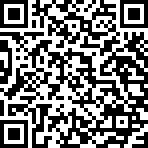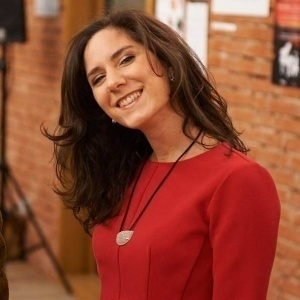
The health crisis the whole world had to deal with places each of us in front of decisions that can change the destiny of our planet: individual destiny is actually linked, today more than ever, to that of all human beings.
We can be the architects of a new beginning that will impact on everyone’s life. Winning against the pandemic indeed depends exclusively on our collective decisions.
The role of global responsibility is increasingly pivotal. We have mentioned it in relation to climate change and the role of scientists, such as American Wallace Broecker, who unfortunately were not listened to for decades, and we are even more persuaded to stress it today. Present challenges, even in this health emergency, prove that we are all part of one humanity, and that only together can we overcome crises.
Since the very beginning of the pandemic, it has been clear that the virus has not only affected our health and our habits, it has also exacerbated crises and scenarios that were already dramatic and sensitive.
We have seen it in refugee camps, among the damned of the Earth, in the increase of social inequalities even in the most developed countries, in the fallout of the crisis on gender issues, in new authoritarianism and totalitarianism, in the limitation of rights and freedoms. At the same time, Coronavirus has made us think about the importance of knowledge and the right to it, in a crucial link between democracy and information.
In all this, the example of the Righteous keeps being the therapy showing us the path to be followed. But who are these exemplary individuals and what are they doing today in new scenarios stemming from the epidemic?
Democracy vs Totalitarianism
Autocratic regimes, starting with China, alerted people late about the epidemic and used this opportunity to further restrict democratic and minority rights. Just think of Viktor Orbán in Hungary, Jair Bolsonaro in Brazil, Recep Erdoğan in Turkey and all the exceptional laws approved not only to fight against the virus, but to strengthen authoritarian power. The pandemic has indeed offered governments an unprecedented opportunity to obtain popular approval to extend powers, which would be considered to be on the verge of tyranny in normal times.
However, it is worth to remember that the extension of democracy and human rights is crucial to winning the battle against the pandemic: virtuous individual conduct cannot last long if it is imposed by force and fear.
This is why today’s positive examples involve those who try to resist dictatorships and totalitarianism to defend the ideals of democracy and pluralism. Such as Zhang Xuezhong, a Chinese academic who denounced Beijing’s management of the crisis, calling for important reforms in civil and political rights, and who was arrested for this.
Only by supporting these individuals and by disseminating their stories can we imagine an actual change in the Middle East, in illiberal democracies, and perhaps even in China itself.
Scientists
If we have relied for months upon scientists and physicians to organize our social and daily life, if we have all understood the importance of information exchange from one country to another - and we have done it first and foremost because we have suffered the consequences of the lack of such exchange, coming to understand the dramatic delay with which China has warned the world and its attempt to cover up an emergency that is now unfolding - we must not forget the warning (unheard by too many) that scientists have given us for years on the risks of climate change and of the impact of human activities on our planet.
It is therefore clear, first and foremost, that democracy is pivotal for knowledge and dissemination of information, but also a guarantor of science and technology being used in respect of human rights. Governments around the world certainly need technological tools to fight the crisis, but it is clear that “too much sharing” can be dangerous for individuals if it is exploited by illiberal governments. It is once again China that needs to be looked at in this sense: apps used to track people in “Phase 2” allow to know the movements and health of all citizens. But it is sufficient to open one’s mind to understand that granting access to one’s own data - facial recognition, tracking, geolocation - also has a negative side to it. A side that Beijing has been using for years with minorities and opponents. It mainly applies to facial recognition systems using a network of surveillance cameras scattered throughout China: any “suspicious” conduct can be reported to authorities or lead to arrests.
What about the crucial role of information exchange within the scientific community? Chinese doctor Li Wenliang was not alone, who was the first to disseminate the report started by his colleague Ai Fen and challenged the ban on “unauthorized” communication of the virus data. There are many doctors, journalists and university professors who have tried to warn the world and have worked so that the challenge of the virus could be won - using treatments, vaccines and shared aid - not by a single state or group of people, but by all human beings.
This is why it is even more urgent today to overcome the disconnection of scientists, intellectuals, politicians and citizens, to restore the guiding and leading role of knowledge and to put environmental and scientific issues on the global agenda, so that we will not end up again being unprepared for the changes of our planet. It takes an alliance between science and politics to deal with new emergencies, as perhaps it never occurred before in history.
Solidarity, social inequalities and migrants
The pandemic cannot be won in one single country, imagining walls between one nation and another: the virus does not stop at borders. In recent months we have seen a return in public discourse of the idea that there are “unnecessary” individuals who can be left to their destiny, at home as well as in the poorest countries, in a renewed mechanism of indifference. We have seen it clearly in Boris Johnson’s words on the alleged “inevitable loss” of elderly people, as well as in a less blatant way in the public discourse on the fact that the most vulnerable would surrender to the virus outcome.
Those who act virtuously in this framework not only reject a model of selective healthcare, but also acknowledge that longer life expectancy is one of the great achievements of modernity.
It is also clear that, although the virus has spread globally, there are much more vulnerable categories of people, therefore the virus has not only been a threat to health, but has also worsened existing severe and compromised cases. This is the case of the poorest of the planet - and of the African American population, who was more affected by the virus due to deep-rooted inequalities - or of prisoners in overcrowded prisons without adequate medical treatment or of authoritarian states. Or those who do not have access to healthcare, or those who cannot afford to miss even one day’s work and are forced to accept risking their own safety and that of their loved ones.
Or eventually, migrants. Filippo Grandi, UNHCR High Commissioner, has estimated that over 70 million people, that is migrants and refugees, are more vulnerable to Covid and to its consequences. Almost 90% of them are in poor countries having weak health facilities. Not to mention its economic impact: most refugees and migrants are people living on a day-to-day basis and with precarious wages, i.e. those income opportunities disappearing first in the event of a lockdown.
There are serious situations in Afghanistan, Lebanon and Venezuela, but “hot spots” of unending conflicts are the most concerning situations, such as Syria, Yemen, Libya, where the pandemic adds to war, economic and social issues.
Examples to be followed today are those who take care of the most vulnerable and who globally choose to build a path of international solidarity that does not leave the weakest behind.
Women
As Denis Mukwege, a Congolese gynaecologist who was awarded the Nobel Peace Prize in 2018, pointed out several times, the virus has also worsened gender issues, mainly in already fragile contexts such as Africa. Furthermore, in several countries, basic sexual and reproductive rights and access to care and services have been dramatically reduced and progress in providing education to all girls has decreased. Women in conflict zones and living in refugee camps have also had to deal with the virus under the worst conditions.
And the condition of women in Western countries adds to this, where women mostly work as carers, social workers, in service jobs, shops and less remunerative jobs. This makes them more vulnerable economically, both during and after the crisis. The Covid-19 pandemic and containment imposed by it have also led to an alarming increase in domestic violence against women and children.
At every latitude there are journalists, students, activists, doctors, lawyers who risk their lives to expose torturers and murderers, to demand equality and respect, to demand decent living and working conditions, freedom and democracy. A battle that goes beyond the gender battle and that has become a universal symbol of the defence of every human being even at a time of health crisis.
The role of the Righteous
Those who saved a life during genocides of the twentieth century, those who defied totalitarianism for a Europe of peace and democracy, those who are fighting for the rights of women and of the weakest, those who have been defending all forms of fundamentalism, those who protect the environment from the threat of climate change, show us not only that it is always possible to make a choice of responsibility at any time, but also that in global challenges we cannot be divided - into states, regions, peoples - we actually need to face these issues aware that we belong to the same nature.
We can only save ourselves together and the Righteous show us the way to do so.
Since the beginning of the lockdown, we have thought that the “world after Coronavirus”would not be the same. The previous status quo is no longer sustainable: nor the economic models, which have caused much of environmental damages and social inequalities that jeopardize the planet, nor nationalistic policies, which in China, America, Russia and elsewhere have proved to be totally unsuitable to face universal challenges such as global warming or the very pandemic.
However, this “world” does not exist yet. It must be built and it is in our hands. We do not need oracles and prophets to be questioned: today we need to wonder what we want to happen and what we can do to make it happen.
The Righteous teach that nothing is predesigned, that individual decisions can change the direction of History.
For human beings to make the best decisions, we need great examples to show us the way forward.







